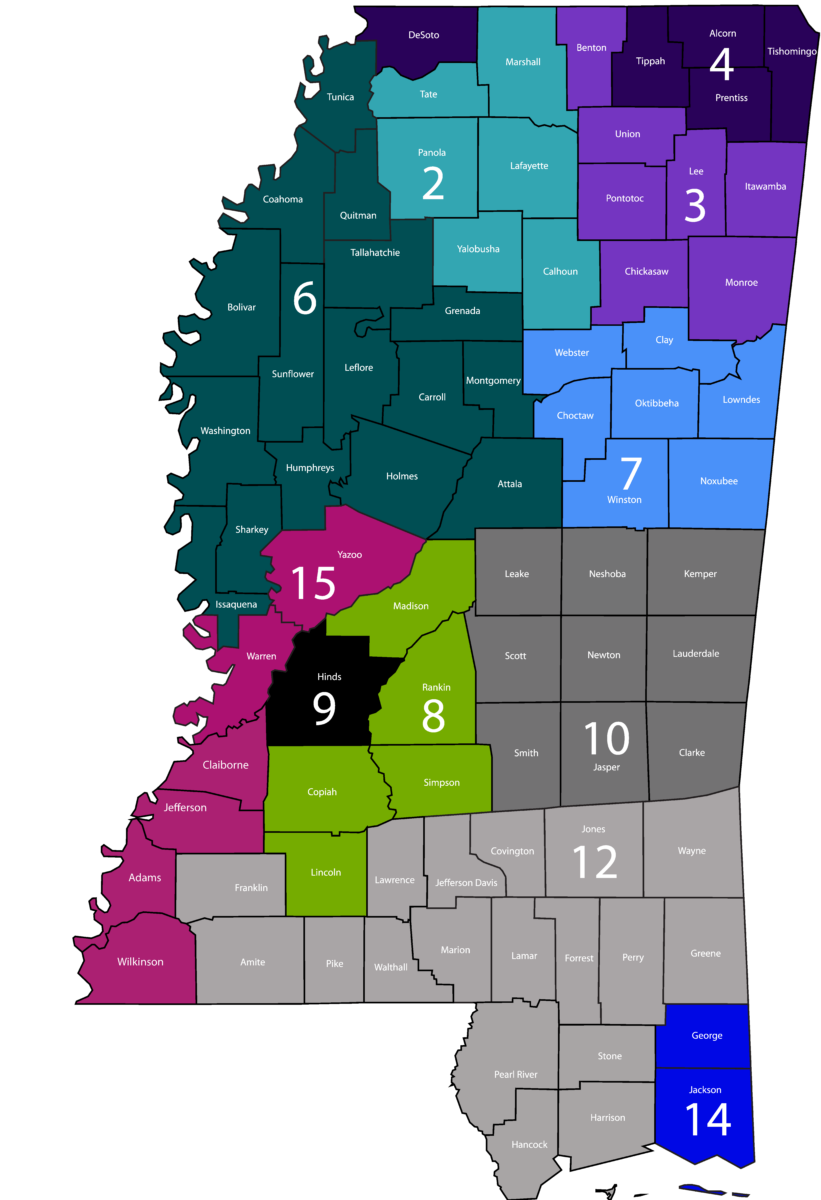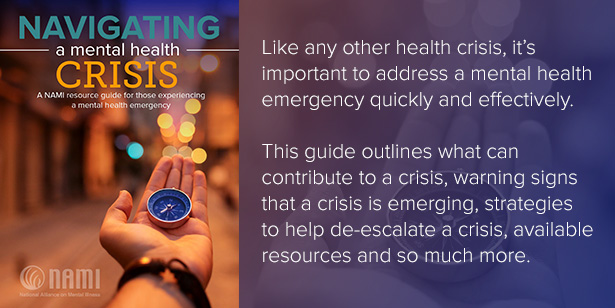Crisis Services
How to Access Crisis Services in Mississippi
Mental health problems are health conditions that can affect the way someone thinks, feels, or behaves. However, just as with any other health problem, it is important to address a mental health problem as quickly as possible. A mental health crisis is any situation in which someone’s behavior puts them at risk of becoming unable to properly provide self-care, of functioning in the community, or maybe even of hurting themselves. Just as with physical health problems, there may be times when a mental health crisis occurs unexpectedly. It is important to know what resources are available to you. Two programs that provide crisis services in Mississippi are Mobile Crisis Response Teams and Crisis Stabilization Units.
Navigating a Mental Health Crisis
“Navigating a Mental Health Crisis: A NAMI Resource Guide for Those Experiencing a Mental Health Emergency” provides important, potentially life-saving information for people experiencing mental health crises and their loved ones. This guide outlines what can contribute to a crisis, warning signs that a crisis is emerging, strategies to help de-escalate a crisis, available resources and so much more. Click the image to the right to view this document.
Crisis Intervention Teams
“We called Communicare. They legitimately came out, stood hip to hip with one of our officers . . . Everybody on the scene, you could see it in their eyes. They went, ‘This is for real.'”
– Oxford Police Chief Jeff McCutchen
Crisis Intervention Teams are partnerships between law enforcement officers and a variety of agencies, including CMHCs, primary health providers, and other behavioral health professionals. Watch the video below for more information about how CIT has benefited Oxford and north Mississippi communities.
Crisis Intervention Teams are the product of a partnership between local law enforcement officers and a variety of agencies, including Community Mental Health Centers, primary health providers and behavioral health professionals. Officers who have received crisis intervention training respond to individuals experiencing a mental health crisis and divert them to an appropriate setting to provide treatment, ensuring individuals are not arrested and taken to jail due to the symptoms of their illness. CITs are a nationally-recognized best practice, and officers who have received CIT training have been recognized as having the understanding and skills needed to resolve crisis situations.
Who Makes Up a Crisis Intervention Team?
A community partnership between law enforcement and members of the local community is essential for a CIT. While officers are trained in crisis situations, the goal is to divert individuals from a possible arrest to a setting where they can receive services for their illness. Partnerships between law enforcement, Community Mental Health Centers or other local health care providers are critical in arranging a single point of entry for treatment services.
What Training is Required?
CIT officers receive 40 hours of training on topics such as mental health diagnoses, medications, substance use issues and more. They also receive hands-on instruction in de-escalation techniques and hear first-hand accounts from individuals who have experienced mental health crises themselves. The training has a specific focus on safety, for both the officers and the individuals in crisis.
Does CIT Work?
Studies have shown that crisis intervention significantly reduces the instances of arrest and re-arrest for individuals with serious mental illness. CIT officers are able to identify individuals experiencing a crisis and are more likely to divert them to a treatment program. CITs have also been shown to reduce officer injuries and calls requiring special officer teams. CITs have worked in both urban and rural communities.
Where Can I Find Out More?
For more information, including how to arrange CIT training, contact Linda Foley at the Mississippi Department of Mental Health at linda.foley@dmh.ms.gov.
Mobile Crisis Response Teams

Crisis Stabilization Units
The role of the Crisis Stabilization Units is to provide stabilization and treatment services to persons who are in psychiatric crisis, without the need for an inpatient admission to a state psychiatric hospital. CSUs offer voluntary and involuntary treatment services. In addition, after treatment an individual will already be connected with their local Community Mental Health Center.
Crisis Stabilization Units Map
